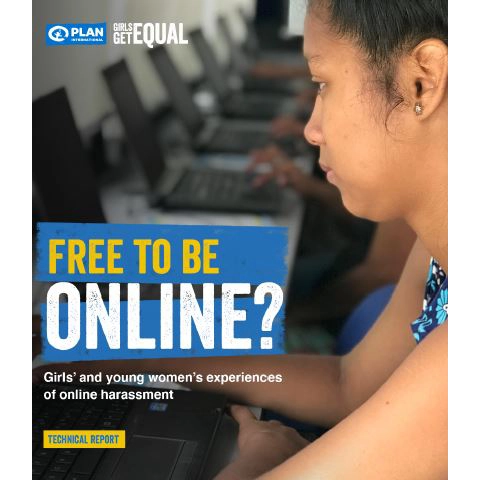Free To Be Online
Stand with girls against online harassment and abuse.
Girls around the world are physically threatened, racially abused, sexually harassed and body shamed online. And it gets worse when they raise their voices and share their opinions. Online violence is serious, it causes real harm, and it’s silencing girls’ voices. In this global pandemic, when all our lives are moving online, girls are more at risk than ever.
This 16 Days of Activism stand with girls so they are #FreeToBeOnline
UPDATE: SOCIAL MEDIA COMPANIES ARE LISTENING
Online violence is serious. It silences girls’ voices – and it causes real and lasting harm. It robs girls of their self-esteem and causes mental and emotional stress. Nearly a quarter of girls we surveyed reported it can leave them feeling physically unsafe, with others having problems at school, with friends or family and in finding or keeping a job.
Girls are opting out of expressing themselves and their opinions for fear of retribution, and sometimes removing themselves from these platforms altogether. Once again, as we’ve seen with street harassment, perpetrators are using their perceived power to silence girls and to force them out of spaces where they have just as much right to be as anyone else.
As the charity for girls’ equality, Plan International Australia is declaring that enough is enough.
Alda, 21, from Indonesia
Meet Maru, an anti-harassment chatbot designed by young people, for young people, to address abuse on social media.
Plan International collaborated with technology collective, Feminist Internet, and young activists to design a creative tool to address the issue of online harassment. We brought together young people from Benin, Ghana, Cameroon, Nepal, South Africa and Germany who are passionate about promoting internet freedom and safety.
Maru is the result of this work, providing real advice and resources from experts and activists in an accessible and friendly format. Girls and women who are experiencing, witnessing or tackling online harassment can engage in a conversation with Maru, to access advice on reporting mechanisms, staying safe online and how to access support. Try it out yourself!
Maru is an example of the type of support girls are asking social media companies for.
Having a guy just send me a naked photo of himself… is really freaky.…They just go into your inbox: ‘Hey babe,’ and then I open this message and I freak out, ’What the hell is happening?’… They are sending you things without your consent, which is just disrespectful.Young woman, 23, Malawi
For my friends who experienced bodyshaming, they became more determined to change who they are just to please others and conform to societal standards.Girl, 17, Philippines
It breaks my heart because, obviously the stories that we’re telling are a very difficult experience for the woman. And you can read how much suffering she went through with all this. But anyway, these people come, and say things like, ‘You should be ashamed of yourself.’ How can they comment without seeing the suffering?Young woman, 22, Chile

The Research
The Research
For this report we spoke to 14,000 girls across 32 countries around the world about their experiences online. This is the largest ever survey of its type. We learnt that more than half have been harassed and abused on social media.
In all 32 countries, girls had been exposed to explicit messages, pornographic photos, cyberstalking and other distressing forms of abuse.
Most commonly girls were targeted with abusive and insulting language, reported by more than half (59%) of girls, followed by deliberate embarrassment (41%), body shaming and threats of sexual violence (both 39%).
The social media platforms designed to connect us as a global community, are drastically failing girls and young women. Inadequate reporting mechanisms are allowing harmful abuse slip through the cracks.
Girls in all of their diversity, need to know that when they’re abused and threatened online, they can report it. That they’ll be listened to. That action will be taken, and that perpetrators will be held accountable.
